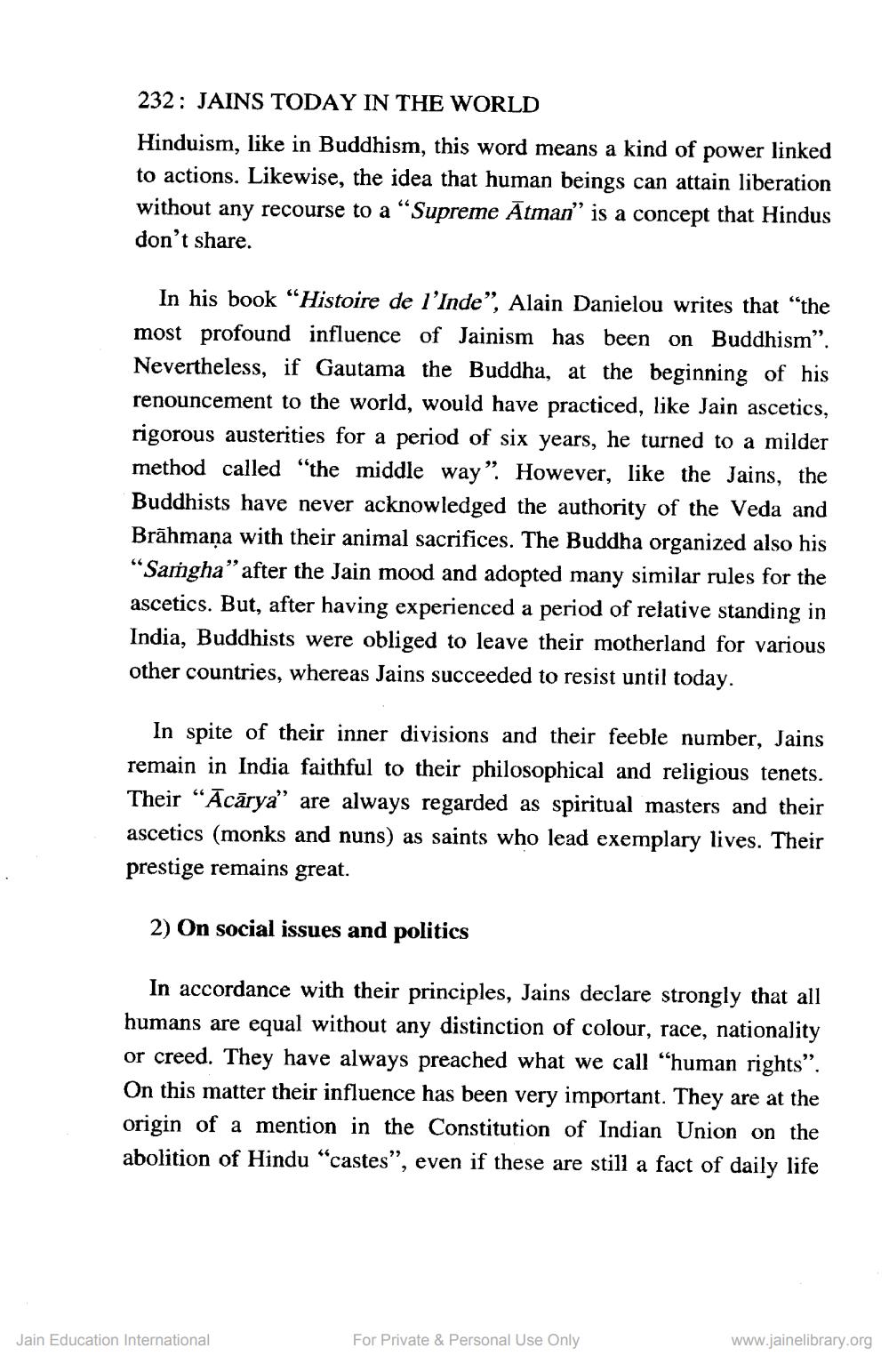________________
232: JAINS TODAY IN THE WORLD Hinduism, like in Buddhism, this word means a kind of power linked to actions. Likewise, the idea that human beings can attain liberation without any recourse to a “Supreme Ātman” is a concept that Hindus don't share.
In his book "Histoire de l'Inde”, Alain Danielou writes that "the most profound influence of Jainism has been on Buddhism”. Nevertheless, if Gautama the Buddha, at the beginning of his renouncement to the world, would have practiced, like Jain ascetics, rigorous austerities for a period of six years, he turned to a milder method called "the middle way”. However, like the Jains, the Buddhists have never acknowledged the authority of the Veda and Brāhmaṇa with their animal sacrifices. The Buddha organized also his "Sargha" after the Jain mood and adopted many similar rules for the ascetics. But, after having experienced a period of relative standing in India, Buddhists were obliged to leave their motherland for various other countries, whereas Jains succeeded to resist until today,
In spite of their inner divisions and their feeble number, Jains remain in India faithful to their philosophical and religious tenets. Their “Ācārya" are always regarded as spiritual masters and their ascetics (monks and nuns) as saints who lead exemplary lives. Their prestige remains great.
2) On social issues and politics
In accordance with their principles, Jains declare strongly that all humans are equal without any distinction of colour, race, nationality or creed. They have always preached what we call "human rights”. On this matter their influence has been very important. They are at the origin of a mention in the Constitution of Indian Union on the abolition of Hindu “castes”, even if these are still a fact of daily life
For Private & Personal Use Only
www.jainelibrary.org
Jain Education International




